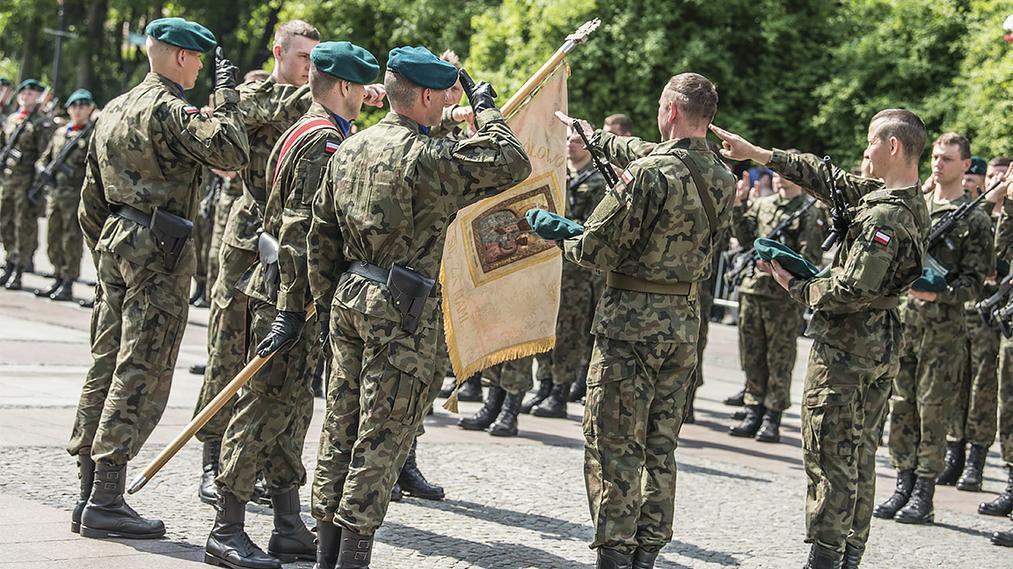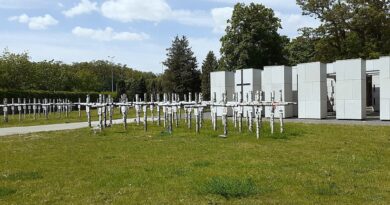Ukraine is only the beginning. We need to prepare Poland for difficult times (Part 1)

(Source: Mon.gov.pl)
The prospect of a global conflict in the coming years is quite real, so the aim is to keep the threat of its consequences for Poland as low as possible in the future.
Marek Jurek
Things should be seen in the process of which they are a result. The new wave of Russian expansion began with Moscow breaking through Lukashenko’s resistance to deepening integration with Russia. As Robert Kuraszkiewicz aptly noted in his book “Poland in the new world” – for Russia, Belarus is a strategic and demographic priority. Its full subordination is like the reunification of Germany, after which the Federal Republic, a state previously comparable to France and Great Britain (economically stronger, militarily weaker), suddenly became the leader of the newly emerging European Union.
The tool of pressure to subordinate (“integrate”) Belarus was primarily the matter of energy (in)dependence. Russia recognized that Belarus was slipping away from it, its president was making more and more gestures towards the opinion of the public, and was pursuing a policy of “Belarusization from above”. From Russia’s point of view, the most dangerous were the US-Belarusian talks on liberating Belarus from its dependence on Russian energy, actively supported by Poland.
Unfortunately, in the eastern sense, sovereign power excludes real (and sometimes any) opposition. Presidential elections were held in Belarus in August 2020. The authorities announced that the president was re-elected with the support of 80% of the voters, his main opponent Sviatlana Tsikhanouskaya allegedly only received 10% of voter support. Mass protests broke out, which terrified Lukashenko, and gave the Russians an opportunity to take control of his country.
Regardless of the understanding for the libertarian opposition, it is difficult to understand why the fruitful policy of strengthening Belarusian independence, pursued by Poland together with the Americans, was immediately abandoned after the election protests in Minsk in favor of “fighting for democracy” alongside the EU. It was not about ignoring the massive opposition to the rigging of elections, but about reacting reasonably, not impulsively. Having improved relations with the government in the previous months and maintaining good relations with the opposition, the authorities of the Republic of Poland had all the tools at their disposal to propose mediation for a political solution to the conflict. Unfortunately, the opinions of renowned experts, such as Marek Budzisz, who convincingly demonstrated that the political upheavals in Belarus were not only a reaction to the absence of political freedom, but also expressed genuine social differences, were ignored. We chose dubious morality, we took part in pushing Lukashenko into the arms of Moscow, as a result of which Belarus (and the Belarusian opposition) lost tens of thousands of talented, active youth who emigrated, and Putin took the opportunity to completely vassalize Minsk. After the implementation of the Belarusian plan, Russia was able to turn its expansion towards Ukraine.
THE FORGOTTEN SOVIET UNION
Social freedom presupposes – as a natural fact – differences of opinion. This also applies to state relations. Unfortunately, when it comes to the attitude to the yet fresh heritage of the Soviet Union (the Evil Empire, as Ronald Reagan called it), the West generally gave up this freedom. Putin openly said that he considered the collapse of the USSR a global geopolitical catastrophe – the West saw it as an expression of unpleasant but understandable sentiments. It is as if the declarations of the German chancellor on the fall of the Third Reich as a continental catastrophe, lifting the last barrier to Stalin’s expansion, were tacitly accepted as an expression of a legitimate national specificity. Even the chancellor or the opposition leader running for chancellor would not have to say it; an international shock would be triggered by similar opinions expressed by any member of the party’s governing body having any chance of joining the Bundestag.
On the other hand, Putin’s perspective in official speeches (for example at Westerplatte in 2009) of the Soviet invasions at the beginning of World War II as an understandable prevention against Western anti-communism, a completely affirmative identification with the USSR, did not prompt any reaction. And the problems that are allowed to grow swell. The old principle of diplomacy says that it is easiest to define a position in the first phase of talks, then it becomes more and more difficult.
The West has forgotten the Soviet Union. The Soviet Union was treated like other non-existent states: the Austro-Hungarian Empire, the Kingdom of Serbia, Croatia, and Slovenia or – Czechoslovakia. Part of history, simply, and if so, why can’t it be “creatively” referenced? When Dmitry Peskov, the spokesman of the Russian president, made the overtly Soviet declaration last month that, “NATO is a tool of confrontation, an alliance that was conceived this way, was designed in this way, was created in this way, it develops and functions in this way” – no one calmly responded that NATO was created to defend Europe against the aggressive and subversive policies of the Soviet Union, and that it is there to guarantee the states that gained freedom after the collapse of the USSR that the Soviet system will not return in any form. This lack of reaction is perhaps the best proof of NATO’s completely passive nature. During the Cold War, verbal anti-communism existed on the fringes of Western politics – today there is not even such a thing anymore. The European Parliament’s formal refusal to adopt a resolution condemning the Yalta Agreements (on their 75th anniversary) was the clearest example of this.
(…)
This article was published in February 2022 in “Do Rzeczy” magazine.



